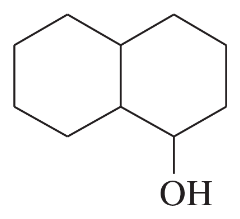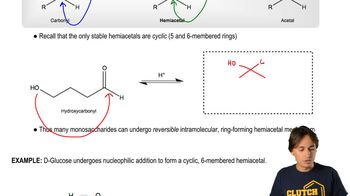Here are the essential concepts you must grasp in order to answer the question correctly.
Cyclic Alkenes
Cyclic alkenes are hydrocarbons that contain a carbon ring with at least one double bond. They are important in organic synthesis as they can undergo various reactions, such as hydrogenation, halogenation, and ring-opening reactions, to form different compounds. Understanding the structure and reactivity of cyclic alkenes is crucial for designing synthetic pathways to target molecules.
Recommended video:
Monosaccharides - Forming Cyclic Hemiacetals
Reactions of Alkenes
Alkenes can participate in a variety of chemical reactions due to the presence of the double bond, which is reactive. Common reactions include electrophilic addition, where reagents add across the double bond, and polymerization. Knowledge of these reactions is essential for transforming cyclic alkenes into desired products, such as alcohols or other functional groups.
Recommended video:
Alkene Metathesis Concept 1
Functional Group Interconversion
Functional group interconversion refers to the process of transforming one functional group into another through chemical reactions. In the context of organic synthesis, this concept is vital for modifying cyclic alkenes into alcohols, as seen in the provided compound. Understanding the mechanisms and reagents involved in these transformations allows chemists to effectively design synthetic routes to complex molecules.
Recommended video:
Identifying Functional Groups

 Verified step by step guidance
Verified step by step guidance Verified video answer for a similar problem:
Verified video answer for a similar problem:



 6:38m
6:38m